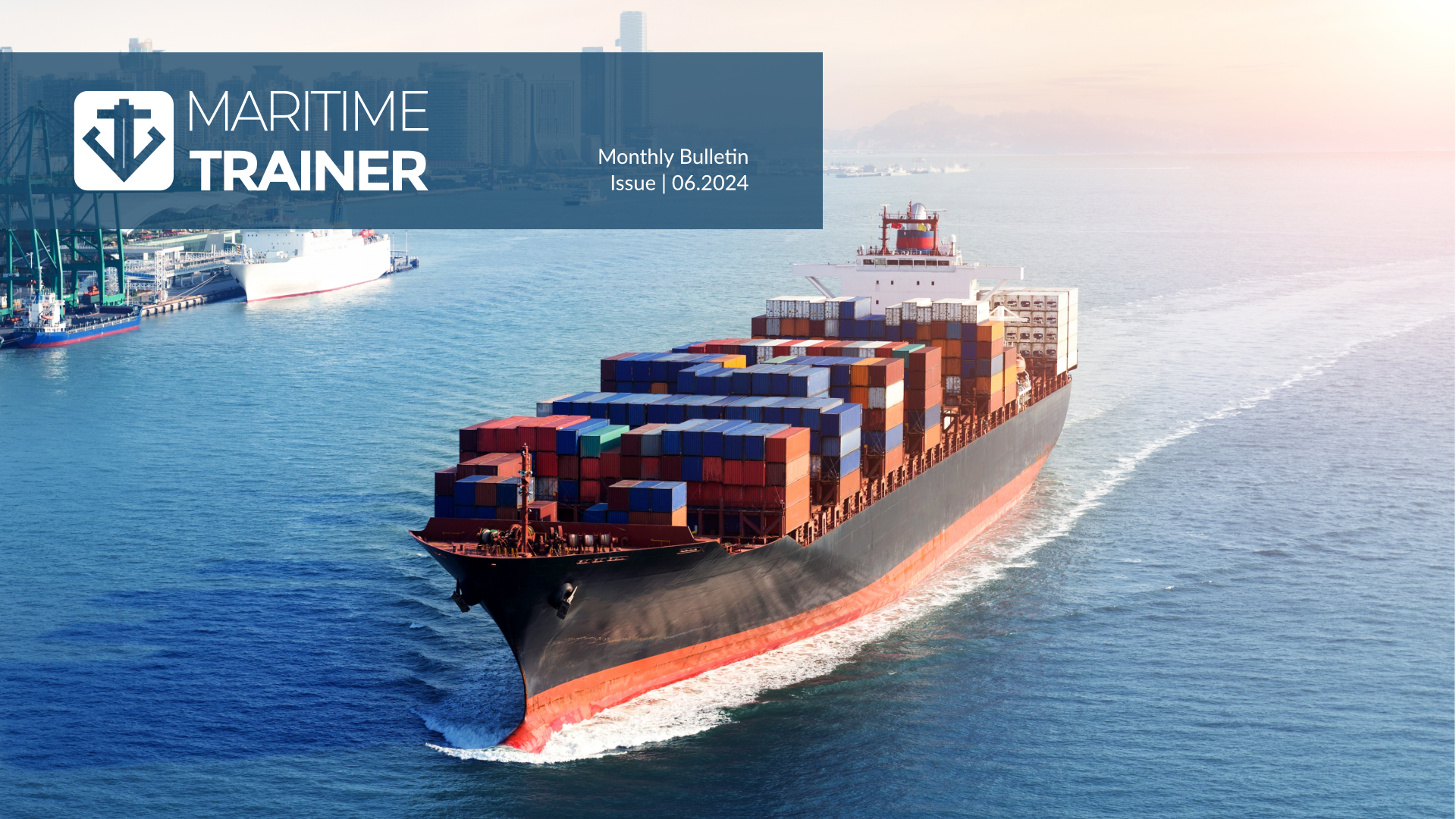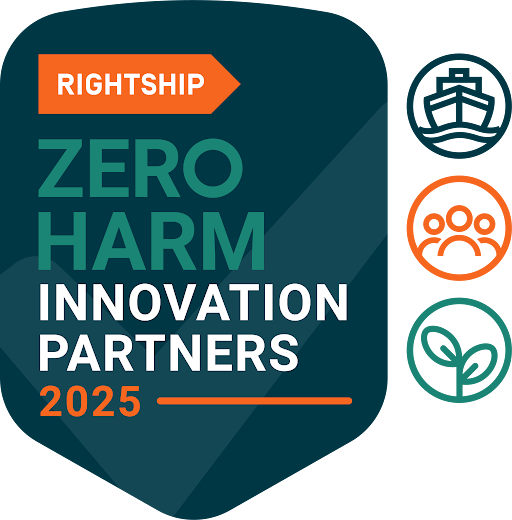Jul 4
June 2024 Maritime Insights: Advancing Environmental and Safety Standards - Monthly Health and Safety Bulletin
As the maritime industry continues to evolve, staying informed about the latest developments is essential for maintaining safety, sustainability, and efficiency. Our June 2024 Maritime Insights bulletin provides a comprehensive overview of key advancements and best practices shaping the future of maritime operations. This blog highlights the significant updates and innovations featured in this month’s bulletin.

Posidonia 2024 was a resounding success, showcasing our cutting-edge VR training solutions and engaging with industry leaders. The event, held in Athens, Greece, provided a unique platform for maritime professionals to explore the latest advancements in the industry. Our interactive VR training games captivated visitors, demonstrating our commitment to using advanced technology for maritime education. The positive feedback received reinforced our belief in the potential of VR to revolutionize maritime training
Getting Ready for Low Sulphur Ship Fuel Oil Limits in the Mediterranean
Stricter Regulations for Cleaner Air
The Mediterranean is set to implement stringent sulfur fuel regulations by 2025. These new rules will require ships operating in the region to limit harmful pollution by Sulfur Oxides (SOx). A recent workshop in Malta focused on familiarizing participants with the requirements for air pollution prevention and promoting energy efficiency under the International Convention for the Prevention of Pollution from Ships (MARPOL). This initiative aims to significantly reduce the sulfur content in fuel oil used by ships in the Mediterranean Sea Emission Control Area (Med SOx ECA).
IMO Presents Pathway to Net-Zero Shipping at Bonn Climate Talks
The International Maritime Organization (IMO) outlined its latest plans to decarbonize global shipping by 2050 at the Bonn Climate Conference. The strategy includes short-term, mid-term, and long-term measures to reduce greenhouse gas (GHG) emissions from ships. Key targets include cutting emissions by at least 20% by 2030 and striving for a 70-80% reduction by 2040. These measures will be implemented through technical energy efficiency requirements and a marine fuel standard regulating the GHG intensity of marine fuels.
The wreck of Sir Ernest Shackleton’s last ship, Quest, was discovered in the Labrador Sea. This significant find adds a new chapter to Shackleton’s enduring legacy and highlights the historical connections between Canada and Antarctic exploration. The Quest, which served as the final platform for Shackleton’s Antarctic ambitions, was found intact at a depth of 390 meters, providing valuable insights into maritime history.
With the 2024 Atlantic hurricane season predicted to be above normal, seafarers must be prepared for potential extreme weather. Best practices for navigating hurricane season include comprehensive voyage risk assessments, securing the vessel against heavy weather, and training crew members on emergency response procedures. Ensuring the water and weather tightness of the ship’s compartments and subscribing to weather routing services are also crucial for maintaining safety during hurricanes.
DNV has published updates regarding ballast water management practices for ships navigating challenging water quality conditions. The new IMO guidance aims to assist ships in complying with the Ballast Water Management (BWM) Convention and the D-2 discharge standard, even when operating in environments with high suspended solids or turbidity. These updates are crucial for maintaining compliance and ensuring the effective operation of ballast water management systems.
Enhancing Maritime Safety
This month’s bulletin features important safety lessons from recent incidents, including the impact of unexpected fog on bridge team operations and the consequences of limited experience and communication during maritime tasks. These case studies emphasize the importance of rigorous safety protocols, proper training, and clear communication to prevent accidents and ensure the safety of maritime operations.
Staying hydrated is crucial for maintaining the health and productivity of seafarers. The bulletin provides tips on recognizing the signs and symptoms of dehydration, such as increased thirst, dry mouth, dizziness, and fatigue. It also offers best practices for ensuring adequate hydration, including consistent water intake, monitoring urine color, and limiting the consumption of alcoholic and caffeinated beverages.
Regulating Heavy Fuel Oil in Arctic Waters
Starting from July 1, 2024, new regulations under MARPOL Annex 1 will impose strict restrictions on the use and carriage of Heavy Fuel Oil (HFO) in Arctic waters. These amendments aim to minimize the risk of oil pollution in the Arctic region. Specific vessels engaged in safety, search and rescue, and oil spill preparedness may receive temporary waivers, but the regulations will ultimately enhance environmental protection in this sensitive area
Maritime Trainer continues to develop innovative projects designed to enhance maritime training and safety. Our latest initiatives include advanced training modules, VR-based simulations, and comprehensive safety programs. These projects aim to improve the skills and competencies of maritime professionals, ensuring they are well-prepared for the challenges of modern maritime operations.
Staying informed about the latest developments in the maritime industry is crucial for maintaining safety, sustainability, and efficiency. The June 2024 Maritime Insights bulletin provides valuable insights into key advancements and best practices shaping the future of maritime operations. By staying engaged with these updates, maritime professionals can enhance their knowledge and contribute to a safer and more sustainable maritime future.
Download and read the full version below!





